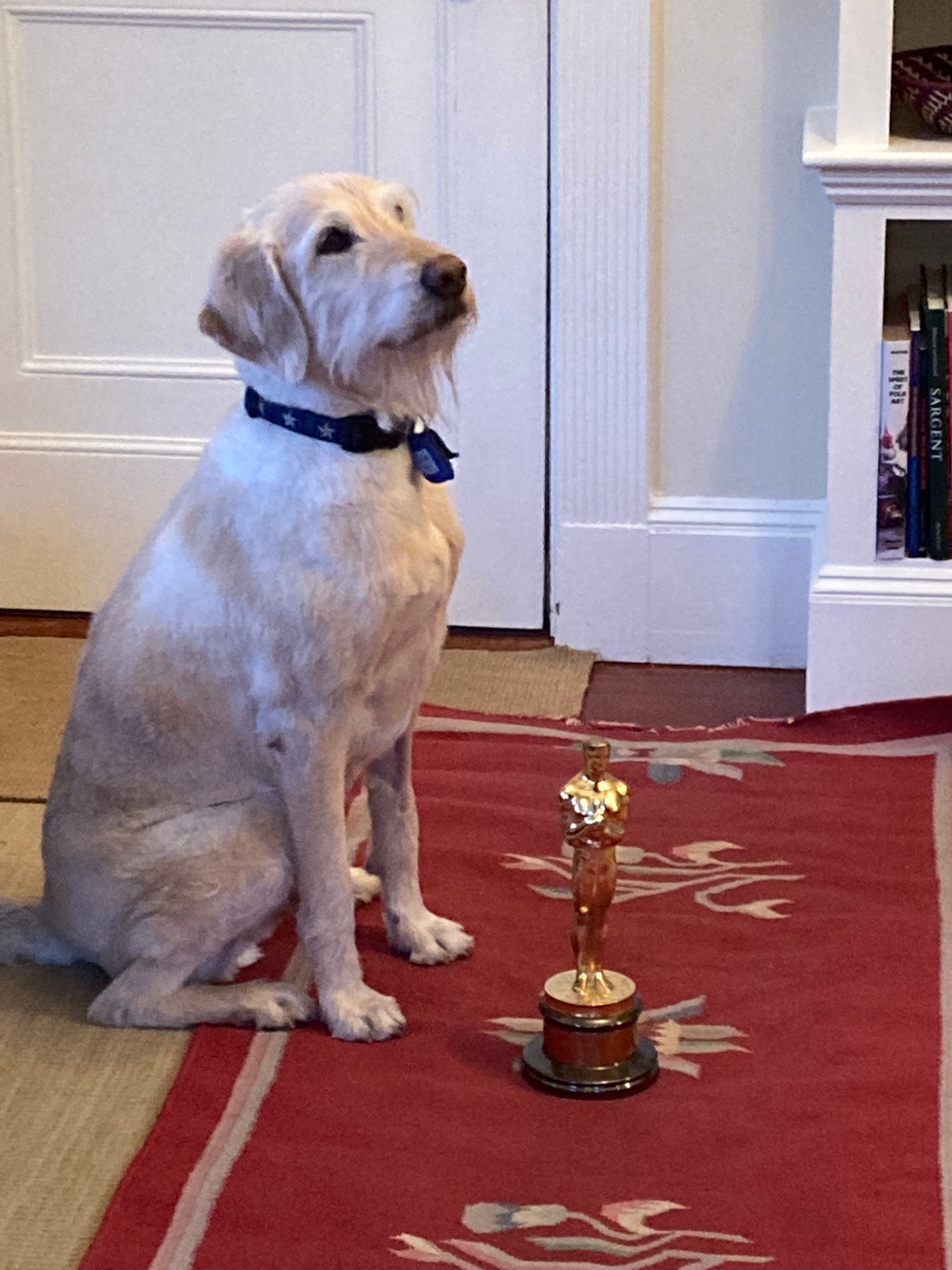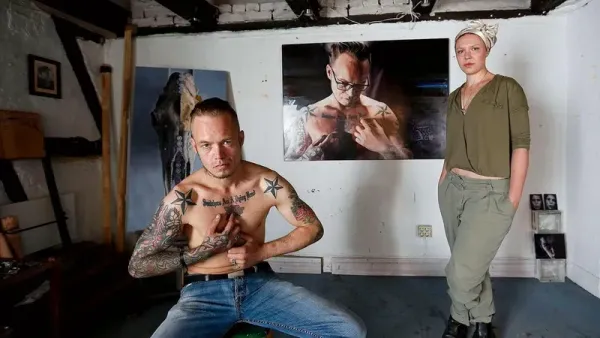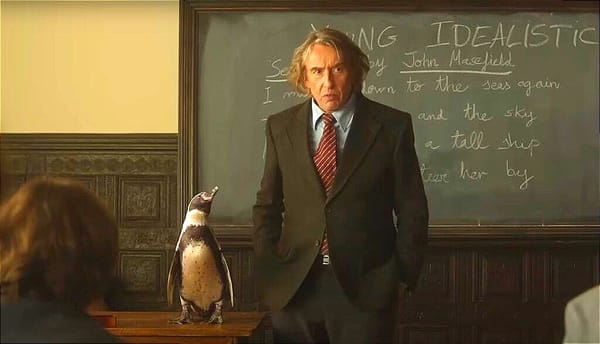Oscars 2022: Your Hit Parade
The acceptance speeches were the best part of a bizarre and unseemly evening.

It’s 9 a.m. and everyone on social media is having a thermonuclear Monday morning meltdown about The Thing That Happened at the Oscars last night. Events like this are always fascinating from a cultural studies point of view, flash mobs of people compelled to quantify their stances on violence, celebrities, misogyny, and more by proclaiming them in the public square. My own feelings are that Will Smith smacking Chris Rock in the face was a sad and unnecessary distraction from, in the micro sense, the artists and craftspeople that everyone was there to celebrate (especially poor Questlove, whose acceptance speech went unheard in the brain fog of What Just Happened?) and, in the macro sense, the unimaginable carnage unfolding 6,200 miles away from the Dolby Theatre in Ukraine. Let me gently suggest: You are perfectly allowed to have an opinion about The Slap, but you are not required by law to post it on social media. Instead, I’d recommend you listen to the many and varied responses of Black women on Twitter, Facebook, and elsewhere. And then maybe think about what they’re saying.
Other than that, Mrs. Lincoln, how did you like the play? I had low expectations for the 94th Academy Award ceremonies, and the evening surpassed them in several directions. I winced in expectation of co-hosts Amy Schumer and Wanda Sykes cracking crass; to my surprise, they generally struck the right balance of respect and derision, and more to the point, they were funny. (And Schumer salvaged the evening on at least two occasions, with the flying Spidey bit and her mock-innocence after the Slap, a game but failed attempt to dispel the pall that had spread over the event.) The Oscars presented before the telecast started – or, as I prefer to think of them, the Leper Awards – were not quite as humiliating as I had feared, since the acceptance speeches were replayed in their entirety. That still deprived the non-winning nominees of hearing their names called out before a live audience and remained a pointless “time-saving” decision in a show that ran 40 minutes long.
The “In Memoriam” sequence was lovely and moving – if you could look past the chorus line of dancers desperately straining to keep us from feeling sad. A late-inning appearance by a frail Liza Minnelli felt mismanaged, although the protectiveness shown her by Lady Gaga was very touching. Tributes to the Bond films and “The Godfather” fell flat. (Why introduce the Bond segment with Tony Hawk and friends? Why bring out Pacino and De Niro to just stand there?) All in all, the whiff of pandering to an audience that couldn’t care less about the movies spread through the night, as did the relentless Disneyfication that turned the Oscars into Mouse House state propaganda. (Disney owns telecast presenter ABC.) Why was the Korean boy band BTS trotted out to praise Disney movies as if they were part of a Soviet-era photo op? Why was the evening’s most lavish production number given to “We Don’t Talk About Bruno,” a Disney song that wasn’t even nominated? (By contrast, Billie Eilish and her brother Finneas thoroughly understood the assignment, both when composing the Oscar-winning theme to “No Time to Die” and when performing it last night.)
It goes on. The clip-show tribute to a century of cinema? Mostly made up of Marvel movies. (Disney owns Marvel.) Ironically and hilariously, the only dent in the Magic Kingdom self-love came with the announcement of the “Fan Favorite” contest ABC had conducted on social media – a transparent ploy to get the biggest moneymaker of 2021, Disney/Marvel’s “Spider-Man: No Way Home” some attention – falling flat after the movie came in second to the Snyder cut of “Justice League,” a Warner Brothers film.
The best parts of the evening were the acceptance speeches, heartfelt, gracious, and allowed to play out, in many cases, without the orchestra playing the winners off. The acting awards were foreordained, but Arianna DeBose absolutely rose to the moment as the second Latina to win a performance Oscar, the first openly queer woman of color, and the third example of someone awarded for playing a character whose portrayal had won a previous Oscar. (Can you name the other two examples? Without looking them up?) Troy Kotsur’s Best Supporting Actor win was both groundbreaking and joyous, perhaps the only moment where everyone watching at home and in person came together in agreement. May he have the post-Oscar career he deserves, rather than the one usually accorded winners in this category. And Jessica Chastain addressed the emotional traumas and legal bigotry affecting the LGBTQ+ community with an elegance rare in an award-podium “political” speech. (I am purposefully excluding Smith’s acceptance speech for Best Actor, a chagrined/defiant five-minute ramble that only further immobilized the room while demonstrating astonishing layers of denial.)
Little-discussed fact: “Dune” won six Oscars, the most of the evening, and director Denis Villeneuve was the most-thanked person in the room. That all of those wins were in “technical” categories (and that four of the six weren’t given out live) shouldn’t detract from the achievement. (Further conspiracy fodder: If “Spider-Man: No Way Home” had been nominated in all those categories instead of a Warner Bros. movie, would Disney/ABC have still kept them off the air?)
And “CODA” won Best Picture, as well as the awards for supporting actor and adapted screenplay, the culmination of a remarkable and unique journey. I first saw the film at online-Sundance in January 2021 and described it as “a warmhearted crowd-pleaser that tells a familiar coming-of-age story with fresh elements” – a not terribly urgent take that I stand by – and watched over the next fifteen months as the pebble kept rolling downhill until it turned into a boulder. Is it the best movie of the year? Not bloody likely. (I still think “Drive My Car” or “West Side Story” would have been a better choice.) Instead, it’s the movie that – and this is what wins the Oscar, year after year – makes Academy voters feel good about the world, themselves, and the industry in which they work at the moment they’re filling out their ballots. And, for once, I don’t much mind.
Housecleaning: I had a higher-than-average return on my predictions this year, with 19 correct guesses out of 23. That’s 83 percent, which may be a personal best. I watched the show at home with my wife and some neighbor friends, literate and artistic folk who aren’t in the film or media industries, and their reaction provided an interesting litmus test. The Slap aside, they felt the evening went well, the awards went to the right people, and there was little need for the outrage expressed online by professional Oscar watchers and dedicated movie lovers. But we all commented on the dissonance of this self-congratulatory affair proceeding – first smoothly and then as if one of the wheels had come off – with barely a mention of the wars, suffering, and creeping autocracy of the outside world. The rare exception came when Amy Schumer sputtered some word salad about the genocide in Ukraine and women losing their rights and trans people before moving on to the next schtick. I think it was supposed to be a meta bit. Either that, or the simulation is breaking down before our eyes.
P.S. One of our guests brought a friend: Irwin Allen’s 1952 Best Documentary Feature Oscar for “The Sea Around Us,” on loan from Allen’s nephew. We all took turns posing with it for photos. Bodhi included.

If you enjoyed this edition of Ty Burr’s Watch List, please feel free to share it with friends.
If you’re not a paying subscriber and would like to sign up for additional postings and to join the discussions, here’s how:
If you’re already a paying subscriber, I thank you for your generous support.





